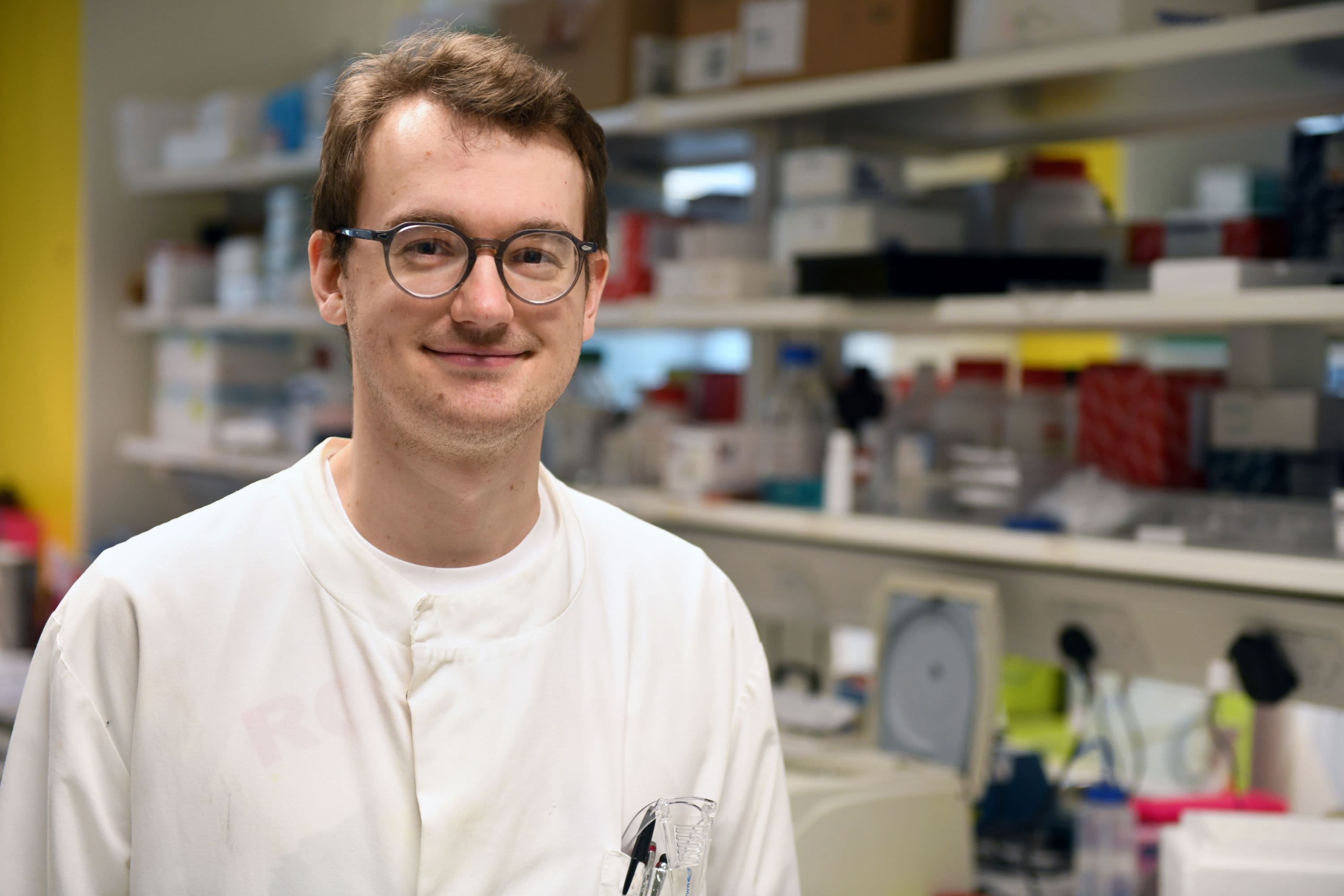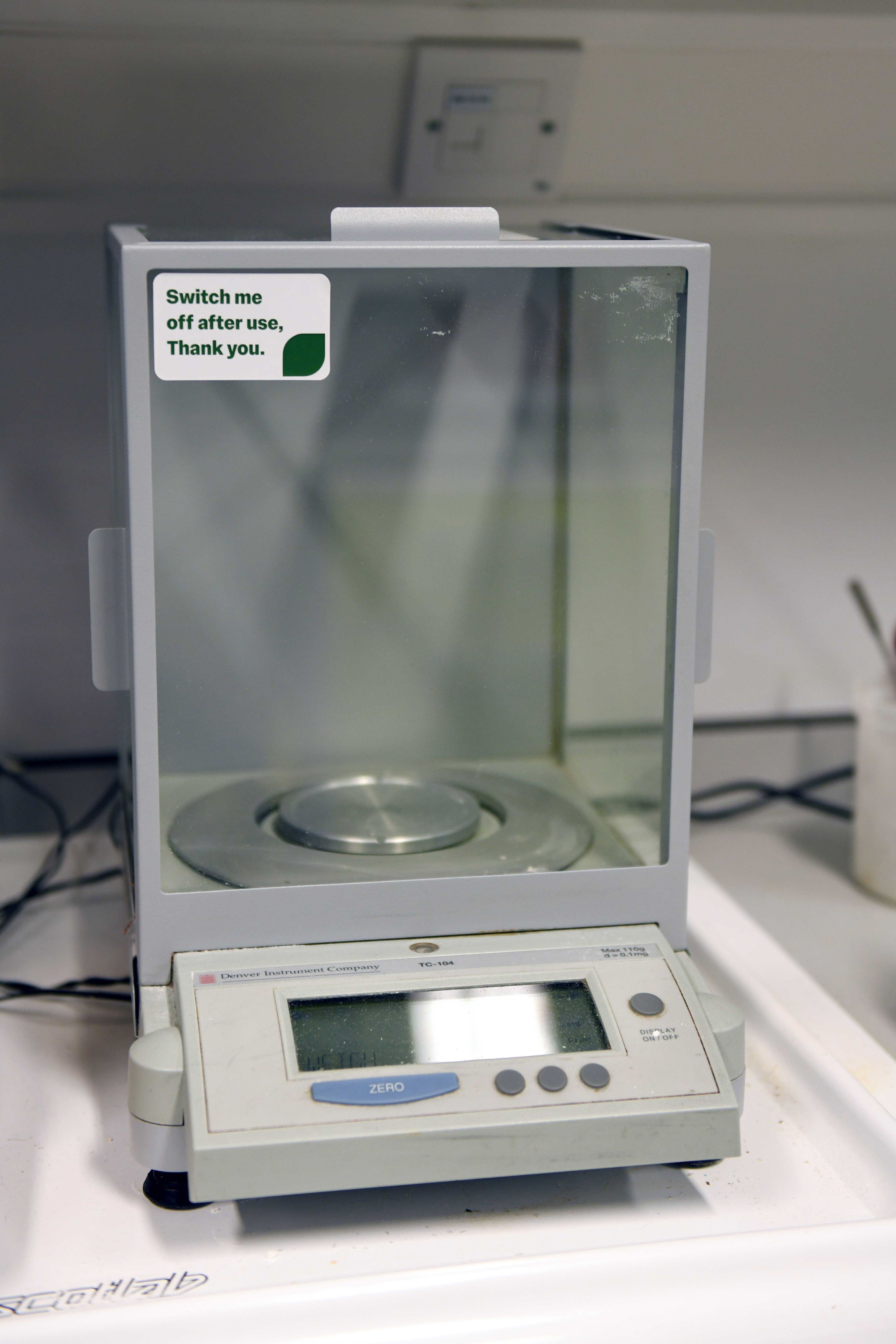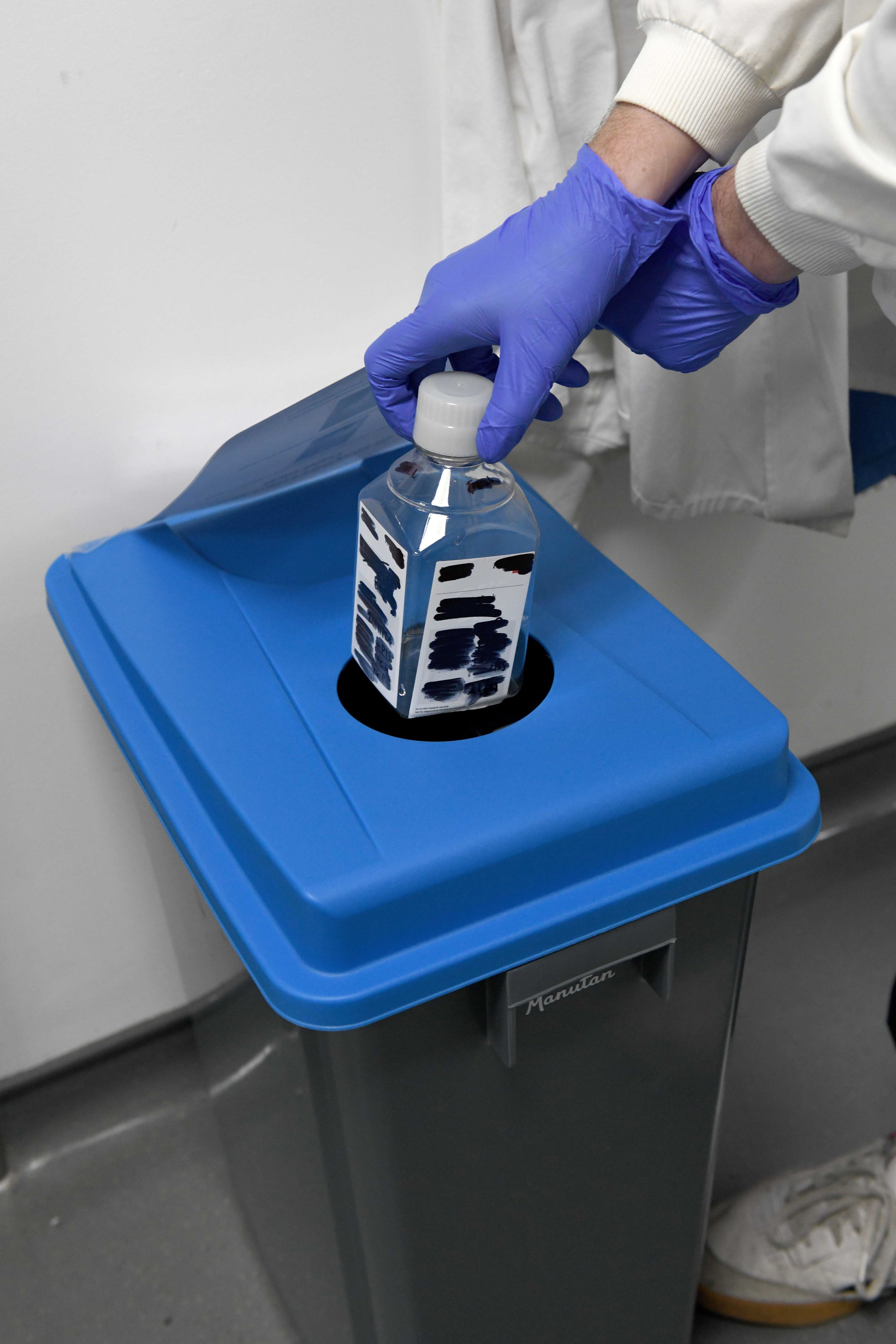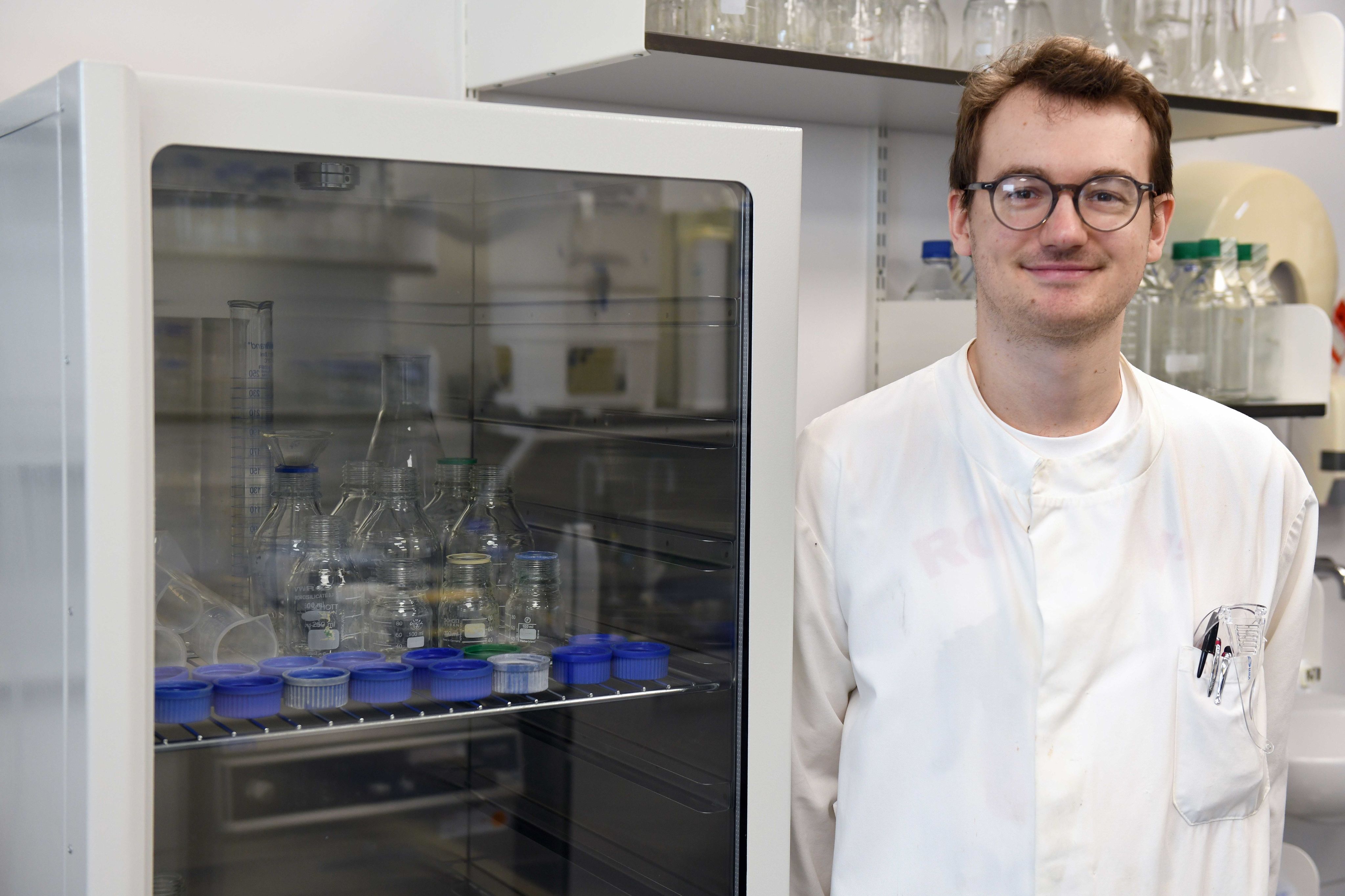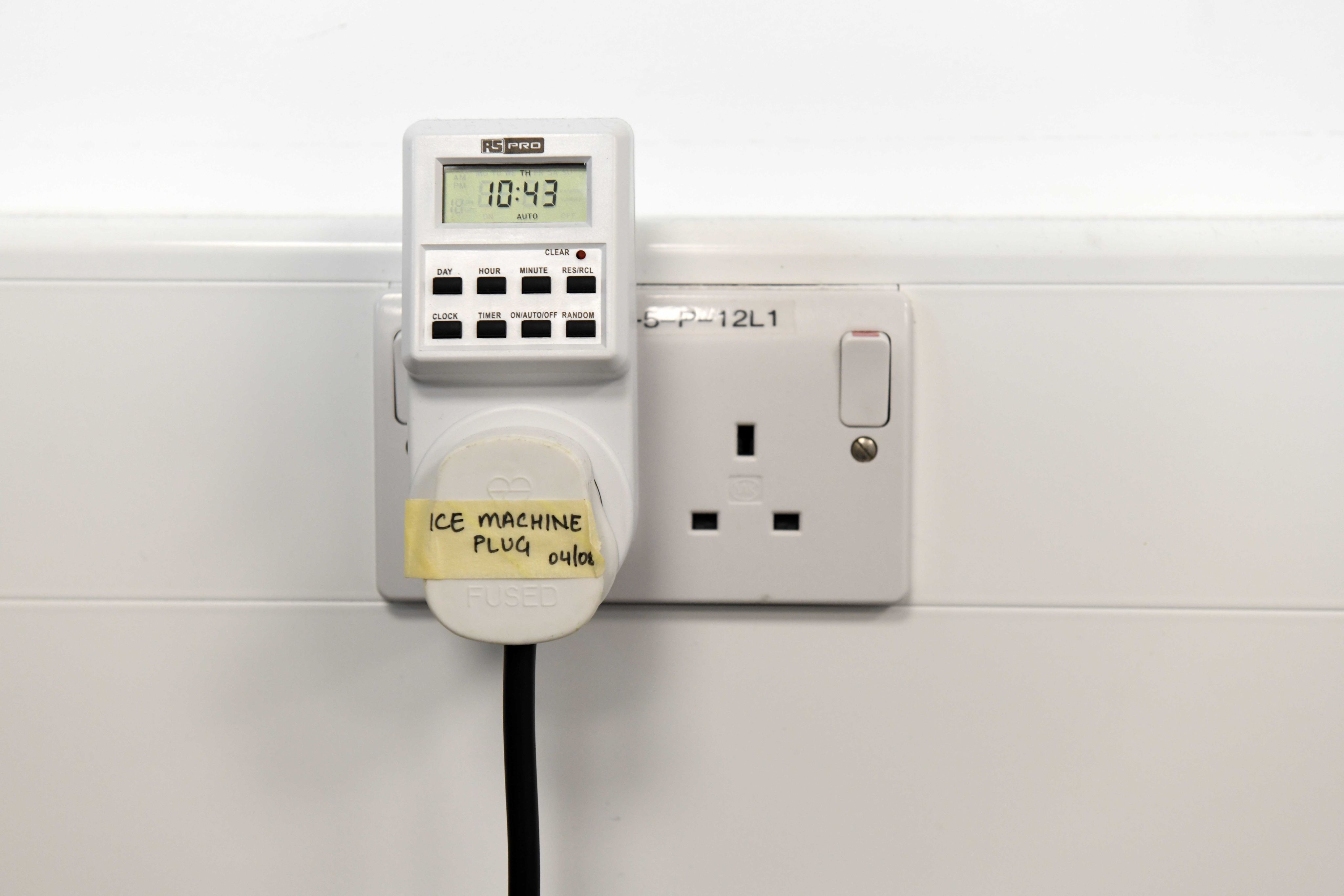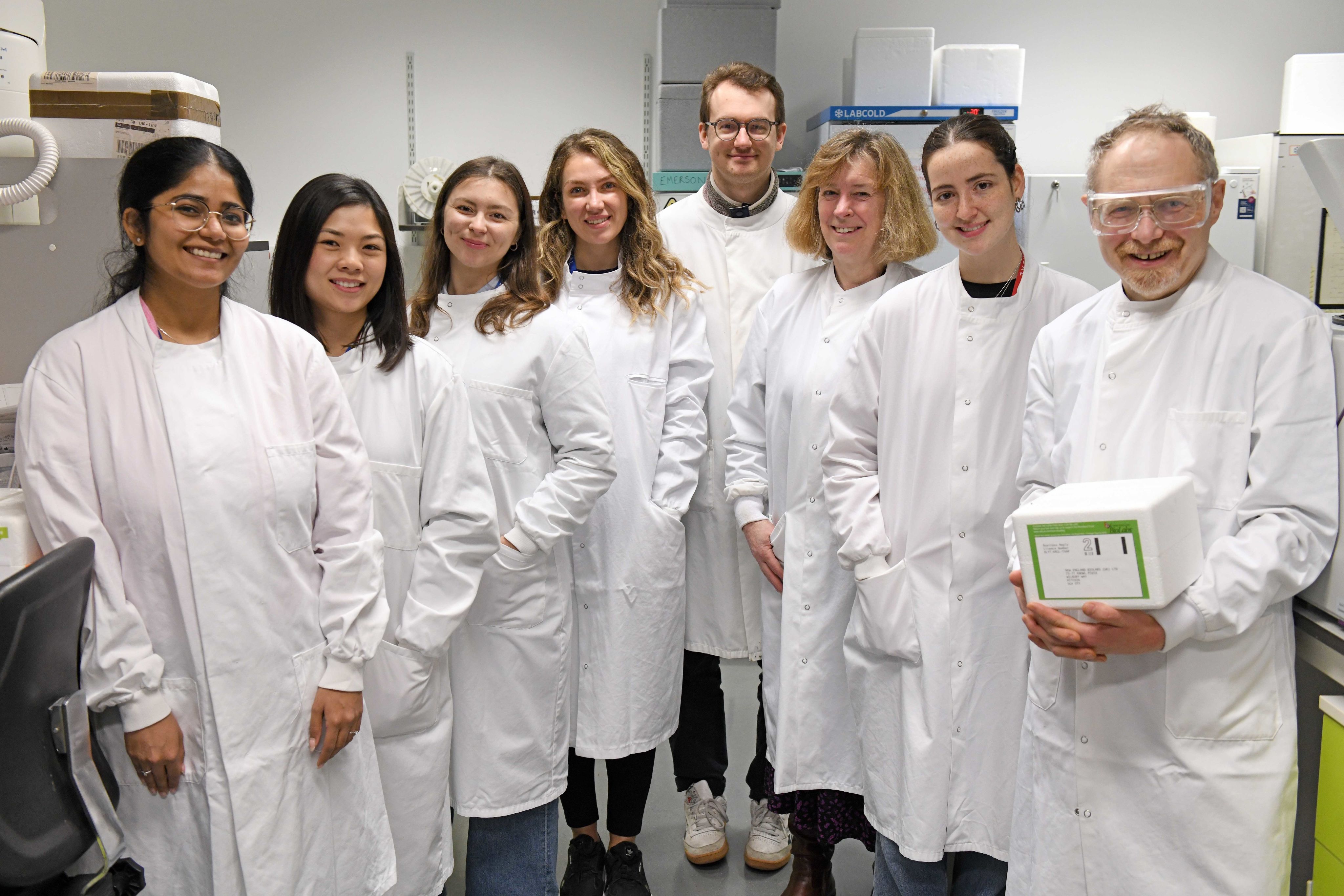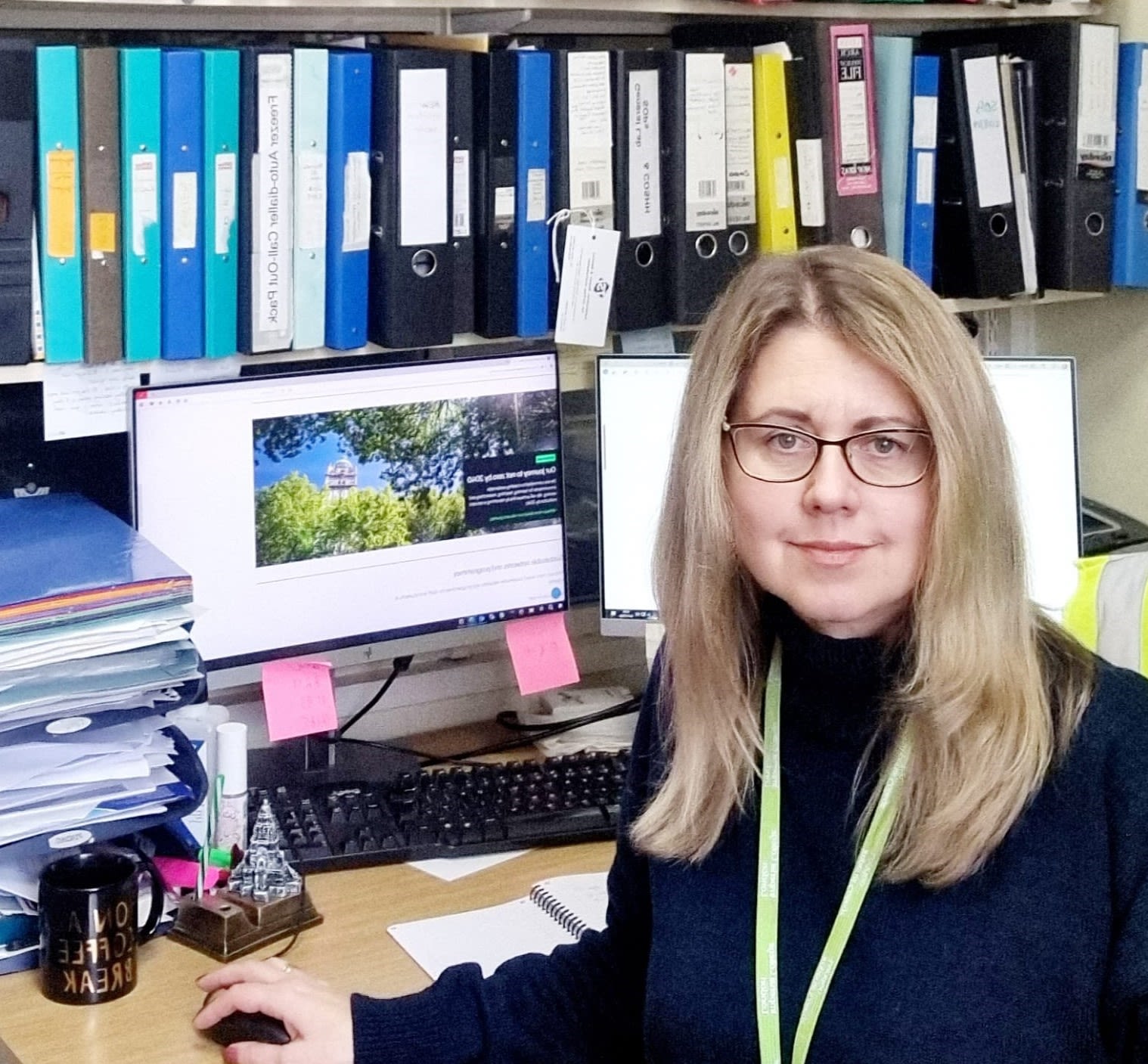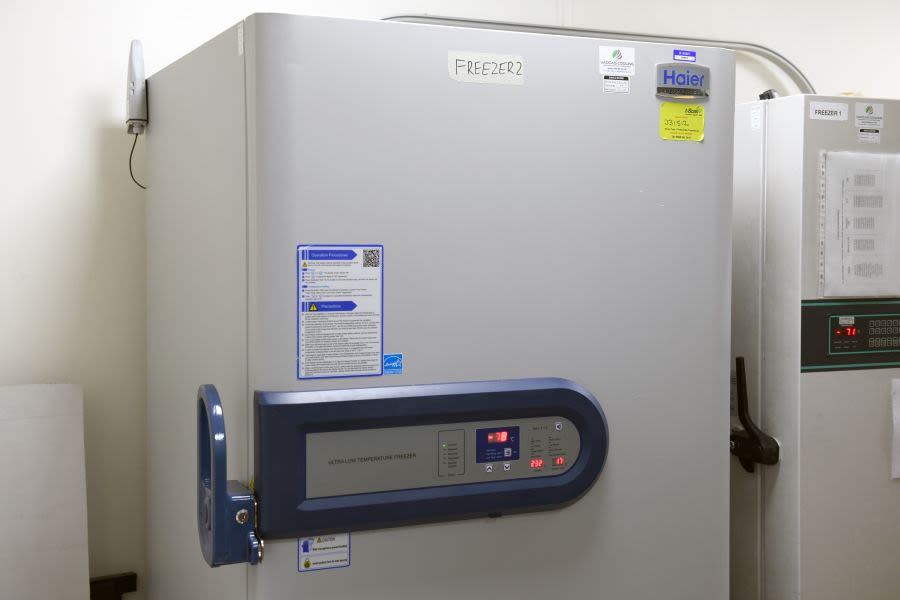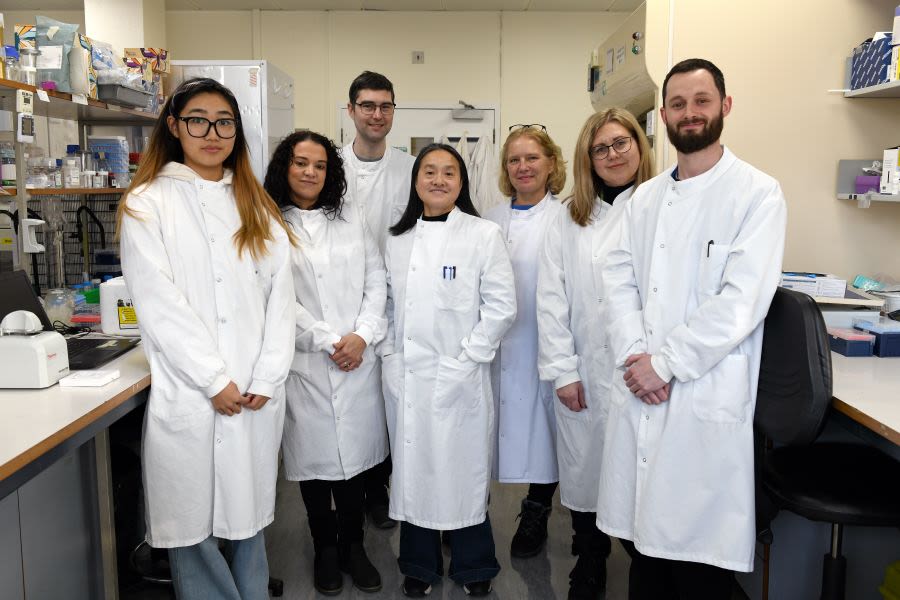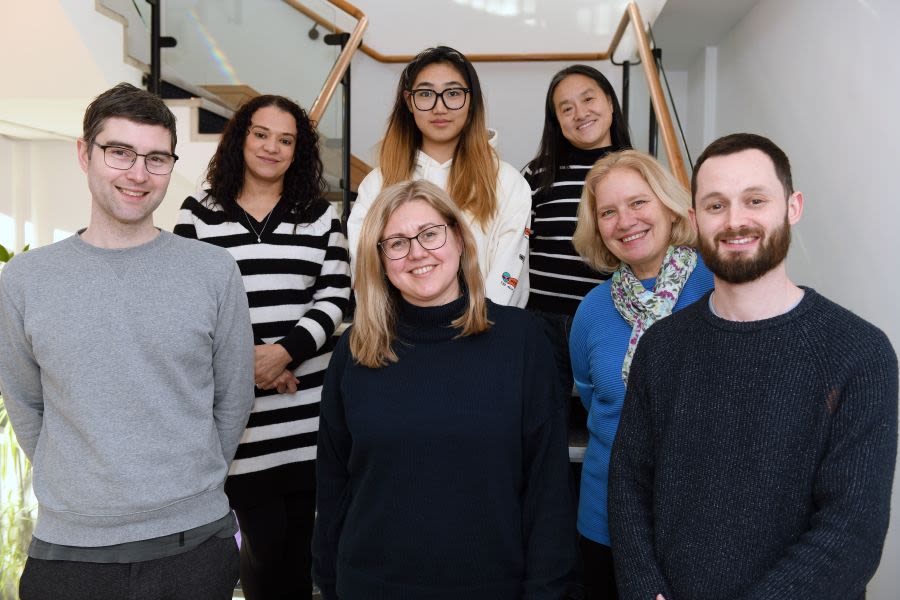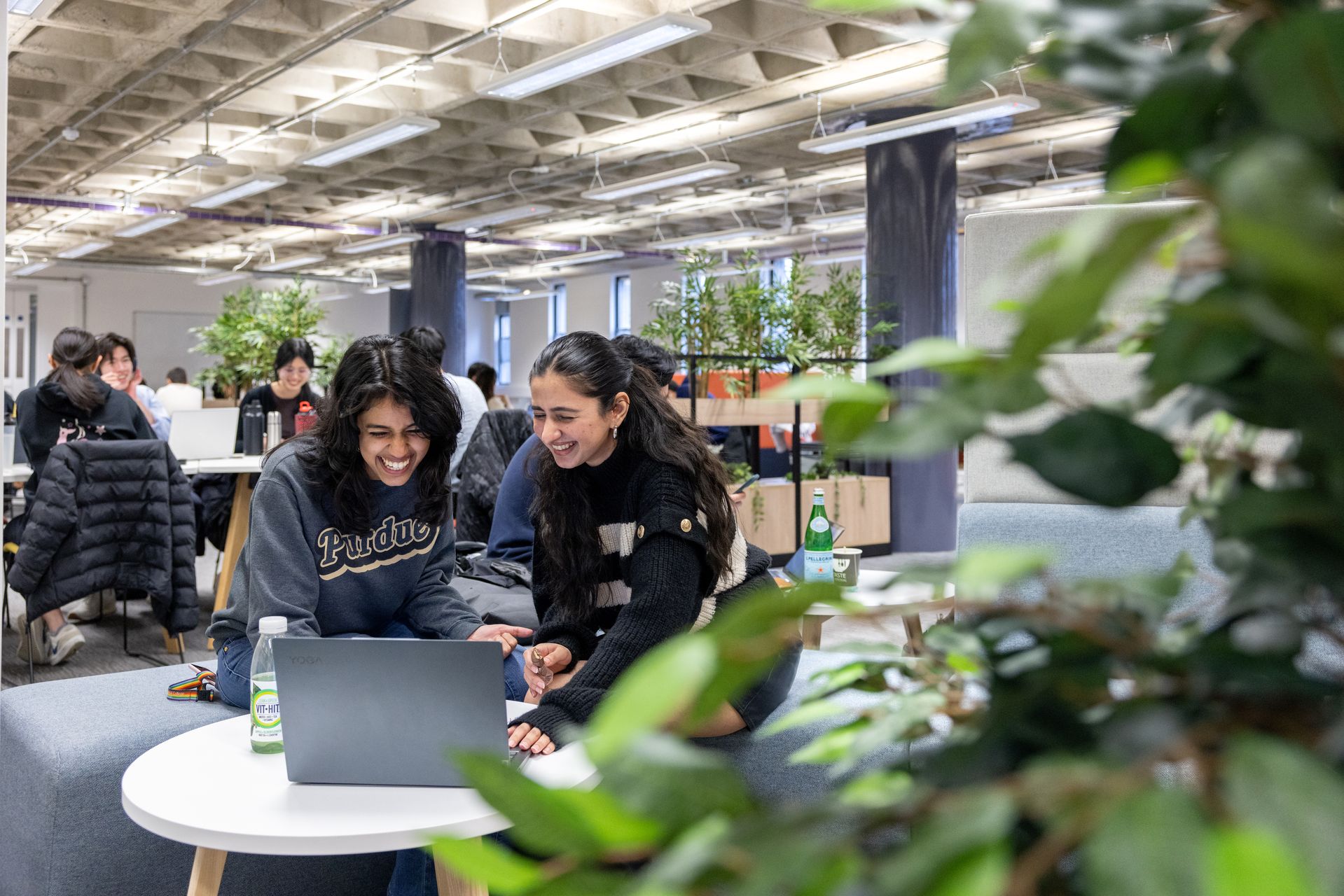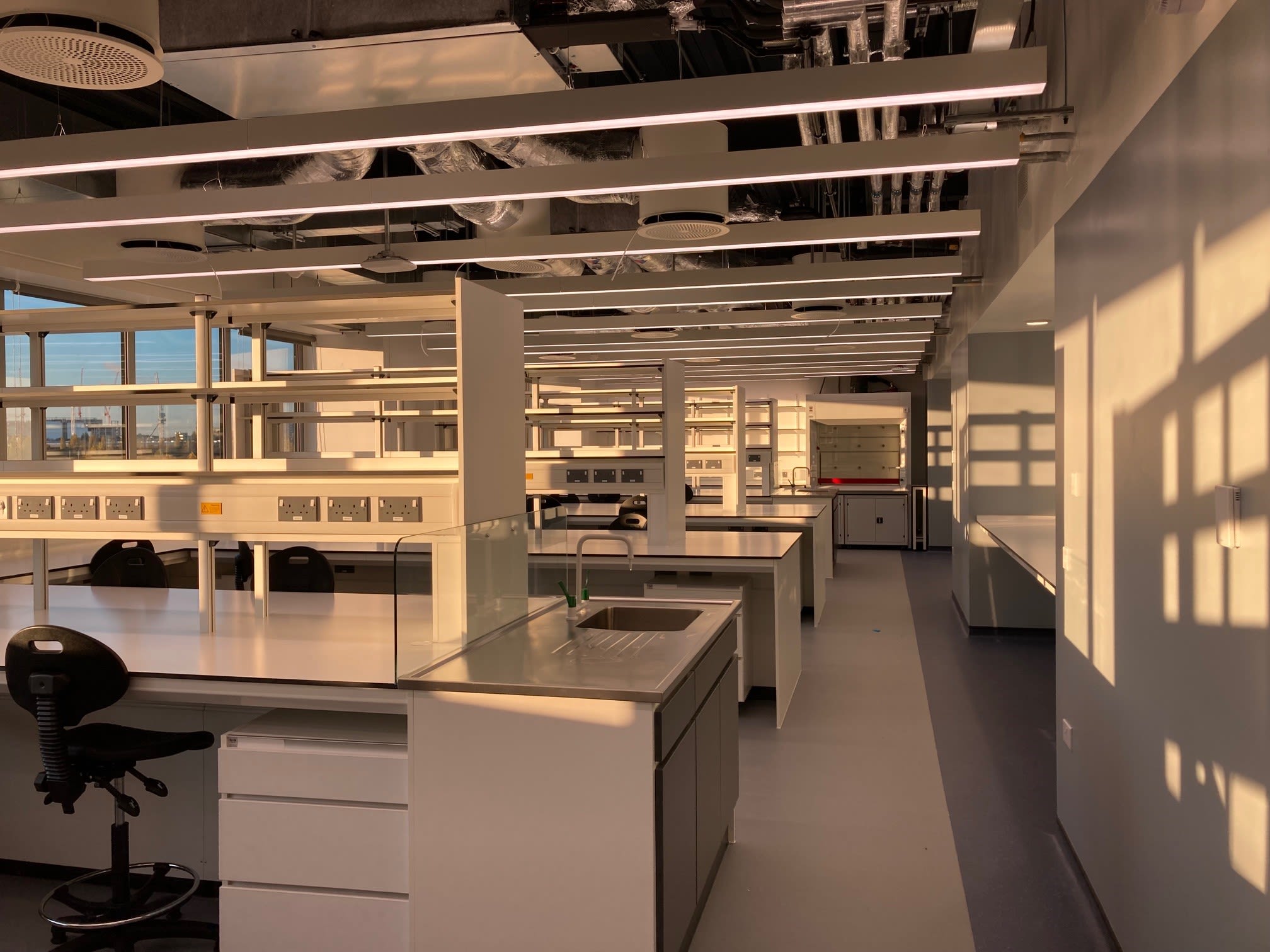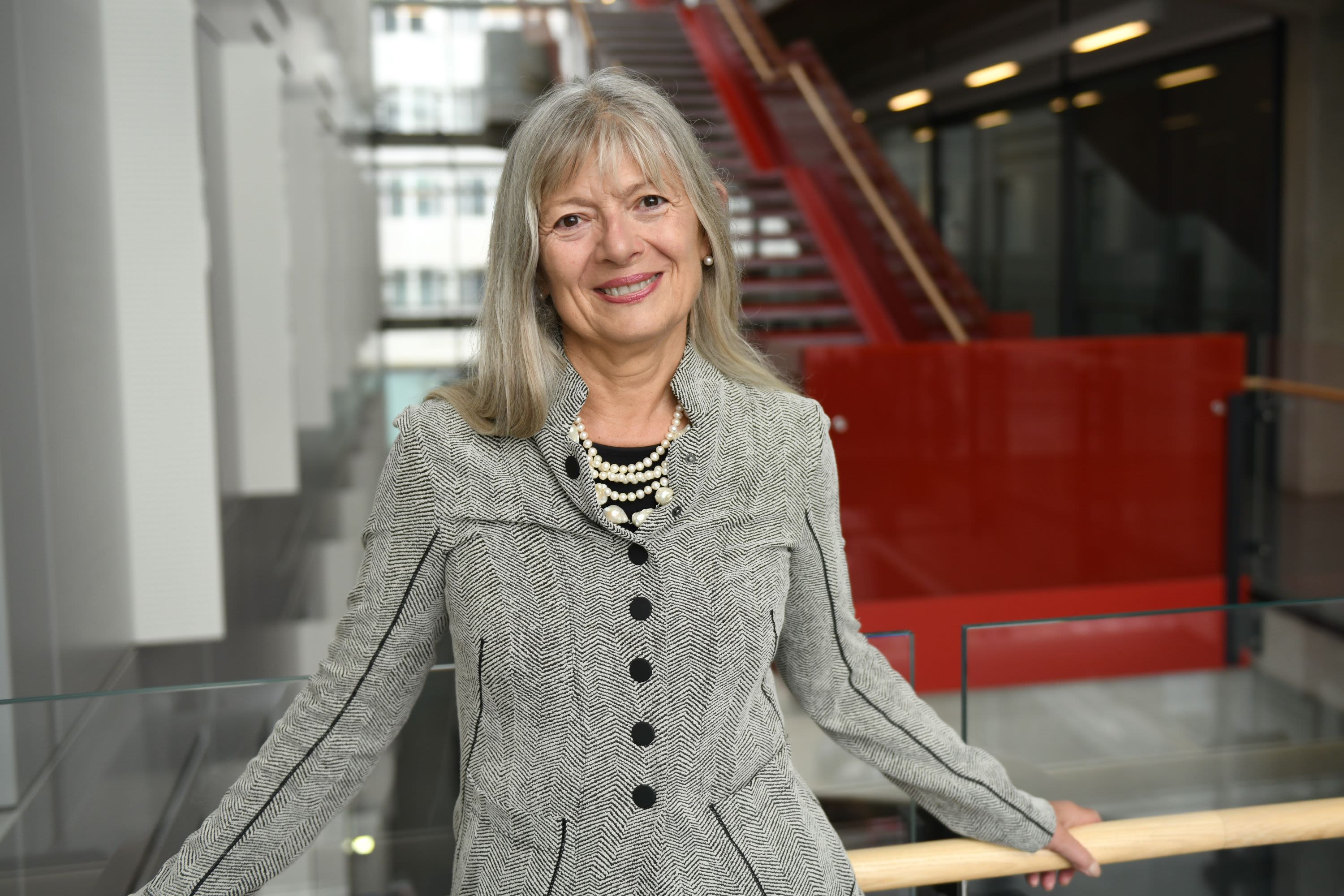Going for gold to go green: sustainability in NHLI's labs
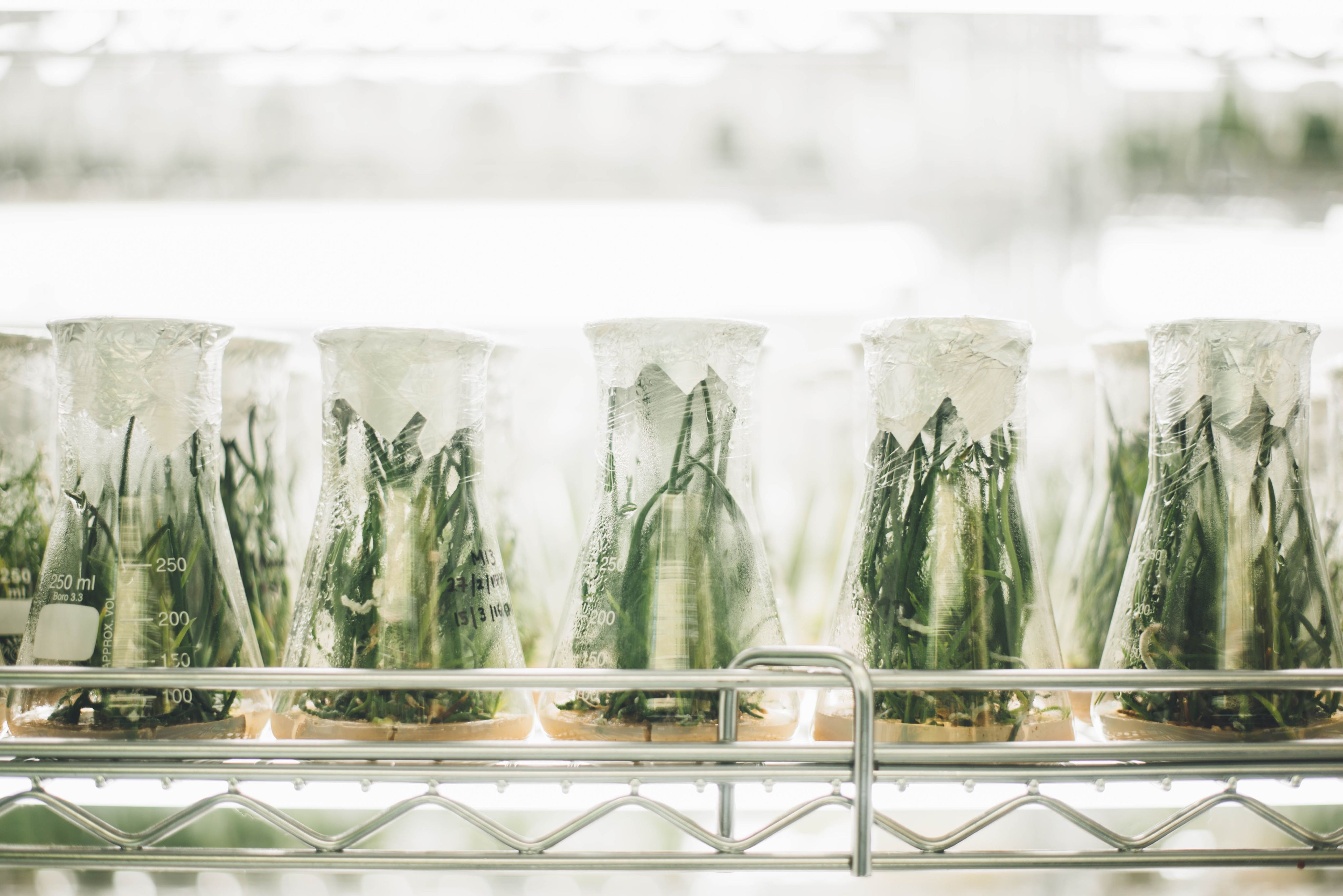
Laboratory research is the backbone of scientific progress, driving innovation across fields from healthcare to climate science.
However, this vital work comes with a significant environmental cost. Laboratories are not only resource-intensive but also responsible for a staggering 2% of global plastic waste, and they consume 3-10 times more energy per square meter than typical office spaces. As we face an era of climate uncertainty, the need to rethink how we conduct research has never been more urgent.
Imperial is working to tackle these challenges head-on, and is on a journey to net-zero by 2040.
At Imperial's National Heart and Lung Institute (NHLI), we're also committed to the cause. We are proud to be making significant strides toward a more sustainable future, contributing to Imperial's ambition to set a global standard for university sustainability.
In this article, we'll spotlight the remarkable efforts underway in our labs to reduce environmental impact, and we’ll explore how everyone, whether in the lab or the office, can play a part in advancing sustainability on campus and beyond.
What is LEAF?
LEAF is a widely recognised standard to improve the sustainability and efficiency of laboratories.
Laboratories are highly resource-intensive, consuming significant amounts of energy and water to operate equipment and maintain controlled environments. In fact, a typical lab uses 3–10 times more energy per square meter than a standard office space. Despite this, unlike health and safety regulations, there is a noticeable lack of standardised guidance on how to make labs more environmentally sustainable.
LEAF was created to bridge this gap. Designed to be user-friendly and low-maintenance, it allows researchers to focus on their science while seamlessly integrating sustainability into their work. LEAF’s built-in calculators provide immediate insights into environmental impact, while its comprehensive resources equip users with the technical knowledge needed to drive meaningful change.
In this feature, we sit down with lab managers from the National Heart and Lung Institute (NHLI), who have earned prestigious LEAF awards. They reveal the innovative strategies they implemented to enhance sustainability, how their teams collaborated to bring these initiatives to life, and their ambitious plans for the future. See how their efforts are shaping a greener, more sustainable research landscape.
We'd also like to highlight the Lab Managers James Wyles who has achieved Bronze for ICTEM Levels 3 & 4 and Lisa Ingram and Kenny Wong who have also achieved Bronze for their labs on the Royal Brompton Campus.
NHLI has done exceptionally well with 87% of your labs certified at bronze level and two at gold level, a magnificent effort"
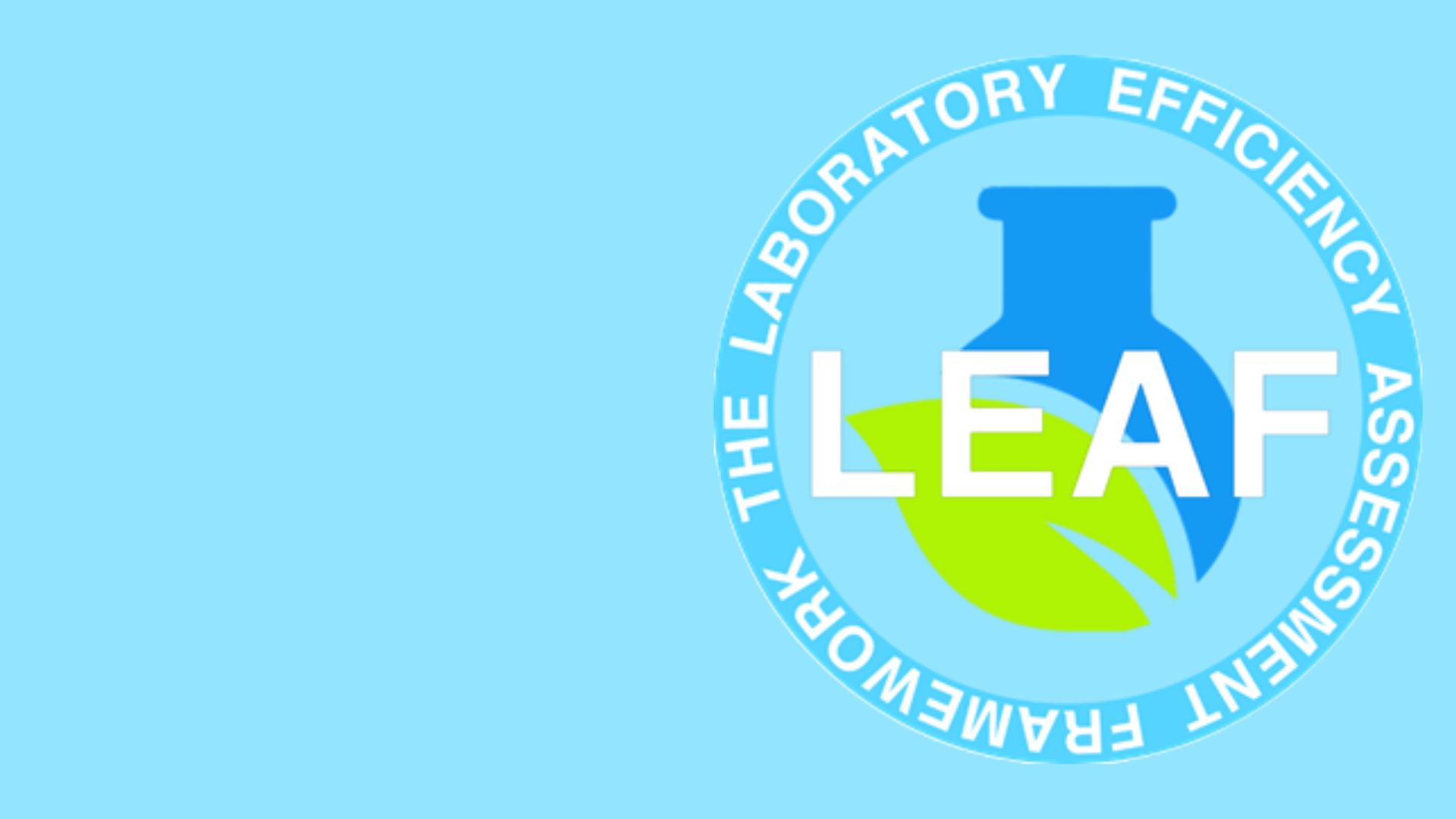
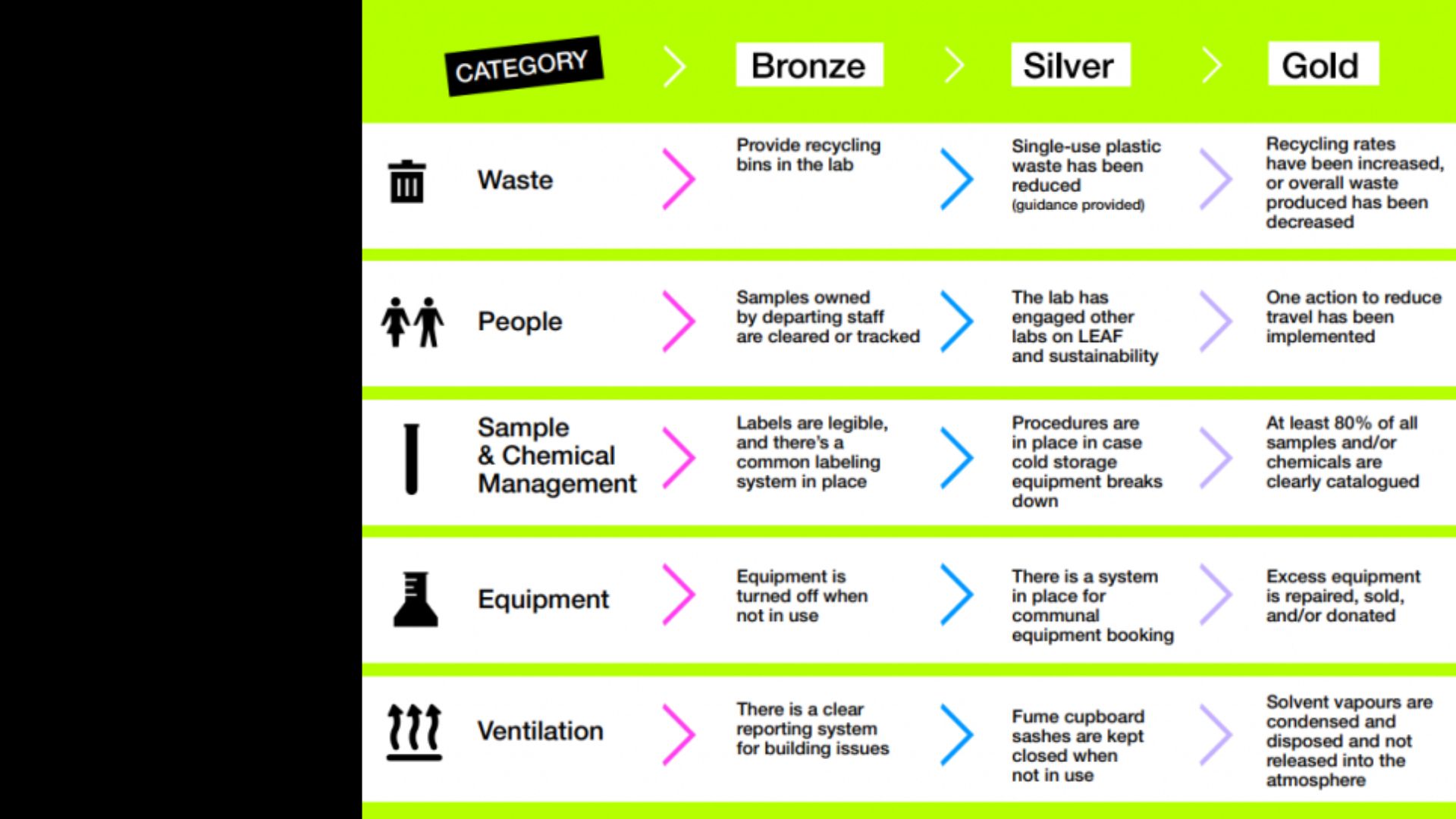
Lab Managers
Henry Wood
Laboratory Manager for the Vascular Science Group
Julia Grizenkova
Laboratory Manager and Section Safety Coordinator for the Gene Therapy Group
Henry Wood
I quickly recognised that there was definite appetite within the section to increase sustainability in our working practices
My first time being involved with LEAF was during my time at Queen Mary University of London a few years ago when we were applying for the LEAF Bronze Award. I was keen to implement this initiative when I started at NHLI.
I quickly recognised that there was a definite appetite within the section to increase sustainability in our working practices. Some groups had already shown fantastic initiative and were making independent steps to this already. To streamline this activity, we created the LEAF team, which is made up of a least one representative from each group at every level, from PhD to PI. These representatives are then responsible for disseminating information and driving change within their individual groups based on the decisions made within the team regarding sustainability initiatives.
As someone who started off working at the bench in the lab, I have always been aware of just how much plastic waste I was producing on a daily basis and have been looking for ways to improve it. When I later became aware of the sheer level of energy consumption of some everyday lab items – such as fume hoods and ULT freezers – I became more determined to take concrete steps towards the reduction of our energy consumption.
We are seeing, more and more, the impacts of climate change around the world and I want to do my part to reduce global CO2 emissions.
My only advice would be to start as soon as possible! The LEAF programme has worked to make its criteria and guidance as simple as possible, making it an incredibly accessible programme. Any steps that can be taken by laboratories towards reducing carbon emissions and making their research more environmentally sustainable can only be seen as a positive – and LEAF is there to help laboratories take those first steps.

Take a look around Henry's Lab
Certain simple changes can produce vast reductions in energy consumption. Increasing the temperature of all the eligible ULT freezers from -80 to -70 degrees can save as much energy over the period of a single year as the equivalent electricity consumption of an average semi-detached house for the same period. I prioritised these simple, high impact changes as they could be implemented the most swiftly and with the most rewarding results.
The use of 'traffic light' stickers have also been implemented which gives lab users the confidence to know when they can and cannot turn off equipment after use. A green sticker assures the user that they can turn the item off after use, a red sticker indicates that the item should never be turned off and an amber sticker indicates that the user should consult the lab manager before flipping the off switch!
In some cases, the impact of the changes we have made are instantly apparent, for instance when it comes to waste. We are currently filling up six large bins with recyclable plastic a week, which would previously go for clinical waste treatment and then into landfill.
As with everything in the laboratory, every change needs to factor in the impact it may have on both research quality and safety. For instance, when looking to implement our recycling initiatives, we had to take great care to do so in a way that would not risk the release of hazardous items into the community. Working with the LEAF team, we managed to come up with a cautious implementation strategy that achieved this.
Working together with the Sustainability Team we were able to get funding for a new drying cabinet which is one of the most energy efficient on the market. This replaced our old energy inefficient drying cabinet which was far too large for our needs. The new cabinet has a 7 day programmable timer so we could set it to only turn on when needed.
We have also introduced automatic timers into the lab in general; which again reassures the lab teams that if the equipment is not in use it will be switched off, thereby saving electricity.
Although the LEAF programme caps out at Gold, which we have now achieved, myself and the team are keen to keep improving the sustainability of the section. We still have some old Fridge/Freezers within the section which we will be applying to replace using the estate’s energy efficiency budget. We also looking to further catalogue and dispose of old unwanted samples, to allow us to more efficiently use the freezer space we currently have.
Julia Grizenkova
It has become clear to me, that sustainable practices are not only beneficial for the environment but also enhance the efficiency and effectiveness of our research.
Making our research more environmentally friendly and sustainable has long been a priority for the Gene Therapy group. We were introduced to the LEAF initiative through a sustainability workshop hosted by the NHLI and Imperial sustainability team, which highlighted the programme’s benefits and success stories from other groups. The structure and comprehensive resources provided by this framework made it an ideal choice for addressing our group’s sustainability goals and driving our initiatives forward.
To prioritise actions for achieving our LEAF certification, I conducted a comprehensive and detailed assessment of our laboratory’s operations, to identify areas with the highest potential for improvement. I focused on actions that would yield significant energy savings and environmental benefits while being feasible within our group’s existing resources. I have evaluated the costs and benefit ratio of each action, prioritising those that offered significant savings with minimal investment, ensuring that any implemented changes would not compromise the quality or integrity of our group’s research projects. Consequently, as a group we were able to put into practice efficient sustainability strategies that matched our objectives and available resources.
Since I started working on LEAF initiatives, my personal perspective on sustainability has evolved significantly. Initially, I thought of sustainability as an important but separate aspect of laboratory work. However, through my involvement with LEAF programme, I have learnt how important sustainability is to every aspect of our daily operations. It has become clear to me, that sustainable practices are not only beneficial for the environment but also enhance the efficiency and effectiveness of our research. This experience has reinforced my belief in the power of collective action and the importance of integrating sustainability into the core values of any organization. I now see sustainability as a continuous journey of improvement and innovation, rather than a fixed destination.
Embrace the opportunity wholeheartedly. Engaging with LEAF not only helps reduce your environmental impact but also fosters a culture of sustainability within your team. By participating, you can achieve significant energy and cost savings, enhance operational efficiency, and contribute to global efforts in addressing ecological emergencies.
I would like to express my sincere gratitude to people who have been instrumental in supporting our sustainability efforts through the LEAF programme. Firstly, I extend my thanks to Professor Eric Alton and Professor Uta Griesenbach, the Principal Investigators of the Gene Therapy group, for their unwavering support and leadership. Their commitment to sustainability has been a driving force behind all our initiatives. Additionally, I would like to acknowledge Ben Gray and Kenny Wong for their invaluable assistance. And most of all, the whole Gene Therapy group for their enthusiasm, dedication and technical expertise that helped to achieve our sustainability goals. Their collective efforts have been pivotal in advancing our group’s environmental performance and I am deeply appreciative of their contributions.
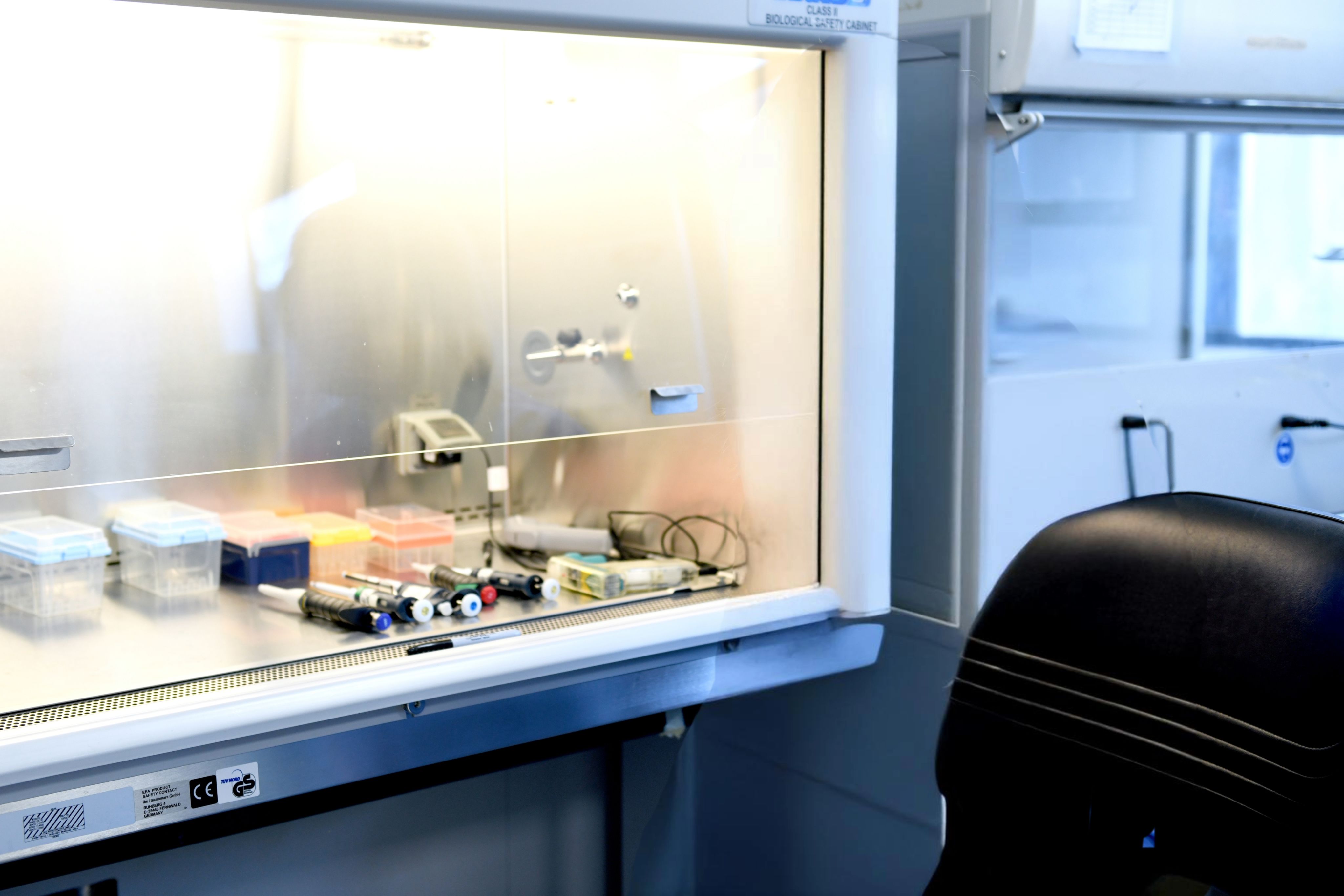
Take a look around Julia's Lab
We have implemented various sustainability actions to enhance our environmental performance. Some of these actions include simple best energy-efficient practices such as switching off equipment after use or adjusting air-changes in the rooms. In addition, to promote collaboration within the campus, we have amended several operational procedures and established a system for booking and sharing various equipment.
Additionally, optimising the face velocity of fume cupboards and adopting best practices, such as turning off hoods and Medical Safety Cabinets when not in use and keeping the sash closed, has led to annual savings of around £600 and a reduction of approximately 0.5 tonnes of CO2 emissions. Moreover, we have implemented group ordering of refillable pipette tip packages instead of boxed tips and kept reusing old tip boxes, which has not only limited plastic waste production but also resulted in annual savings of around £800-£1,000. These measures have streamlined our operations, leading to improved efficiency without compromising research quality. The structured approach provided by LEAF has also fostered a culture of environmental responsibility among all members of our team, further enhancing our commitment to sustainability.
Our group has noticed significant improvements since engaging in the LEAF initiative. We have observed a great reduction in energy consumption and associated costs, which were measured using the LEAF calculator. For instance, increasing the ULTs temperature by 10°C reduced energy consumption by about 30%, which not only translates into 2.36 Tonnes of annual CO2 emissions saving but also £2669.87 annual cost saving.
Furthermore, we have implemented rigorous waste segregation and recycling protocols to minimise landfill contributions and optimised the use of consumables to reduce waste production. These measures have not only contributed to a more sustainable environment but have also fostered a sense of shared responsibility and collaboration among our team members.
Implementing sustainable practices in our laboratories has presented some challenges. We needed to modify our established practices and ongoing procedures. Overcoming this requires effective communication and training to highlight the benefits of sustainable procedures and environmentally friendly operations. Technical challenges such as optimising equipment settings without compromising research quality have required careful planning and collaboration with technical experts. To guarantee long-term success, constant effort and dedication from every team member as well as effective communication are required for the monitoring and upkeep of sustainable practices. Despite these challenges, our team’s enthusiasm and commitment to the LEAF framework have been instrumental in driving our sustainability efforts forward.
Our future goals for sustainability within the group are ambitious and comprehensive. We aim to further reduce our environmental footprint by continuing to optimise energy usage and waste management practices. To progress further, we are planning to participate in the Green Impact sustainability programme, which will help us to improve sustainability across all areas. By integrating the Green Impact programme with our existing initiatives, we hope to stimulate our overall sustainability performance and develop a positive culture of continuous improvement.
Looking Forward

The work is not just required by our lab teams; as of 2023-2024, Green Impact has launched which is a UN award-winning programme, run internationally by SOS-UK (Students Organising for Sustainability UK). Green Impact is a sustainability change and engagement programme for people wanting to make a difference. It is a structured awards programme that helps teams understand sustainability and social responsibility, shows them what they can do to make a difference in their own area, and supports them in achieving these actions.
We encourage you to form a team, no matter the size – whether it's a single office, an entire floor, a whole building, or even a whole department. Together, you’ll have the opportunity to make an impact, work towards sustainability goals, and track your progress through the Green Impact League Table. So, why not challenge yourself to rise to the top next year? Join us in making sustainability a part of everything we do.
Building Sustainably
NHLI are also excited to be moved into Imperial’s first fossil fuel-free building; the newly refurbished Dr Victor Phillip Dahdaleh Building. Whilst the move came about as part of a strategic reorganisation – allowing colleagues from the same department to be co-located on fewer campuses to enable deeper collaboration within the NHLI, sustainability has been at the forefront of Project Manager, Paco Villegas Ruiz’s plan:
From the beginning we focused on improving sustainability beyond the original scope."
"All the windows and the existing curtain wall in the south façade have been replaced with high-performing, triple-glazed windows. That's savings of around 22% in energy for the life of the building.
In such complex installation, where it is required to maximise energy and best performance, the design and installation of the controls system (Building Management System) are of capital importance."
We are excited to be in the final stages of our move into this new building, where we are supported by a dedicated team committed to establishing gold-standard laboratories once operations return to normal. Across the various campuses and buildings where our department is present, NHLI has achieved significant success, with Sue Francis, Safety and Technical Services Manager, has played a crucial role in leading this initiative and guiding the lab managers and their teams to success, and is eager to see what the VPD building will accomplish as we settle in and continue our work.
The NHLI lab management team have really taken lab sustainability to heart, and their success with the LEAF scheme is a testament to that.
They have dedicated a lot of time and effort to work with their sections and groups to improve ordering and use of lab consumables, equipment usage and efficiency – all driving down our environmental footprint and saving a few pounds in the process!
I’m hugely proud of their achievements, and look forward to working with them all to share best practice across our campuses, and improve our environmental credentials further.
Thanks must also go to all the PI’s, research groups and lab sustainability champions who have worked with the lab managers to help deliver our LEAF success at a local level."
Equally committed to this vision is our Head of Institute, Professor Barbara Casadei, who joined us in October 2024:
At the National Heart and Lung Institute, we are incredibly proud of the progress our teams have made in advancing sustainability within our laboratories."
"Joining the LEAF programme is an important step in reducing our environmental footprint, and we congratulate all of our labs for their dedication to making a meaningful impact.
Sustainability is a core priority for us, and as we transition into our new building with state-of-the-art lab spaces, we are committed to aiming for Gold status across all of our labs. This commitment not only reflects our responsibility as researchers but also ensures that our scientific work continues to advance with the future of our planet in mind."
